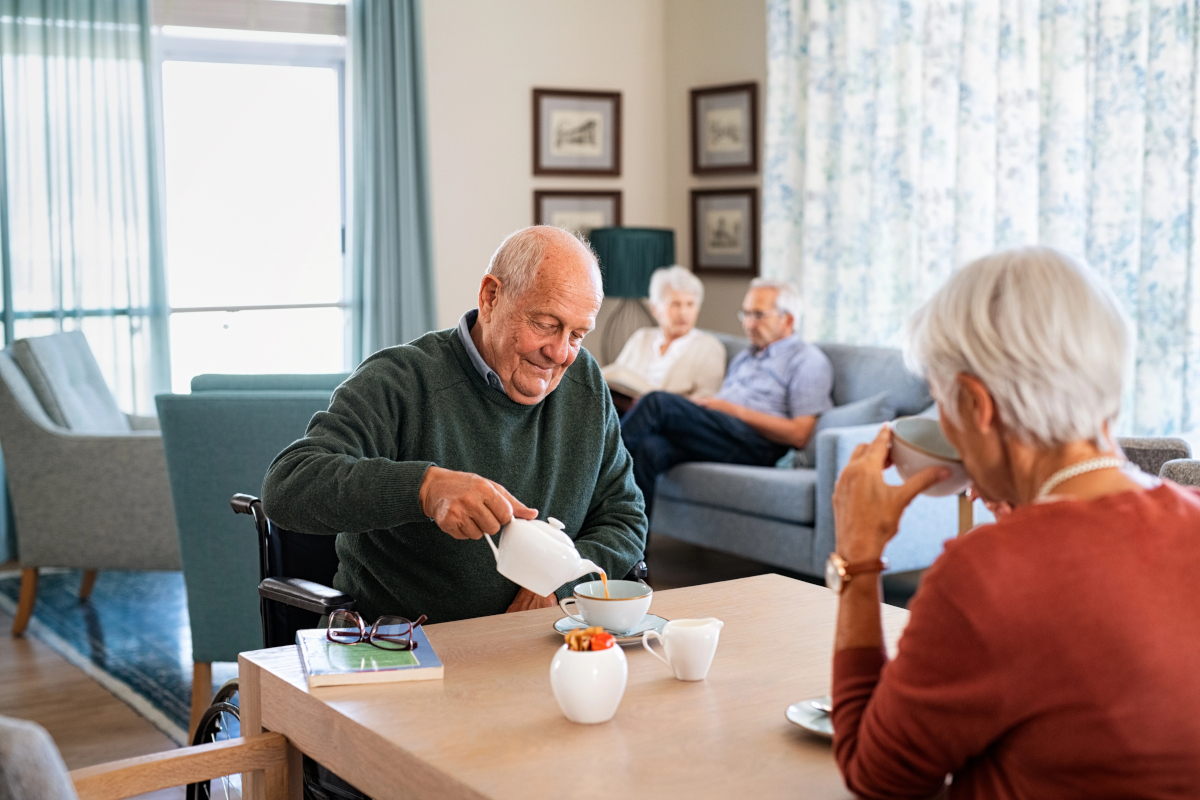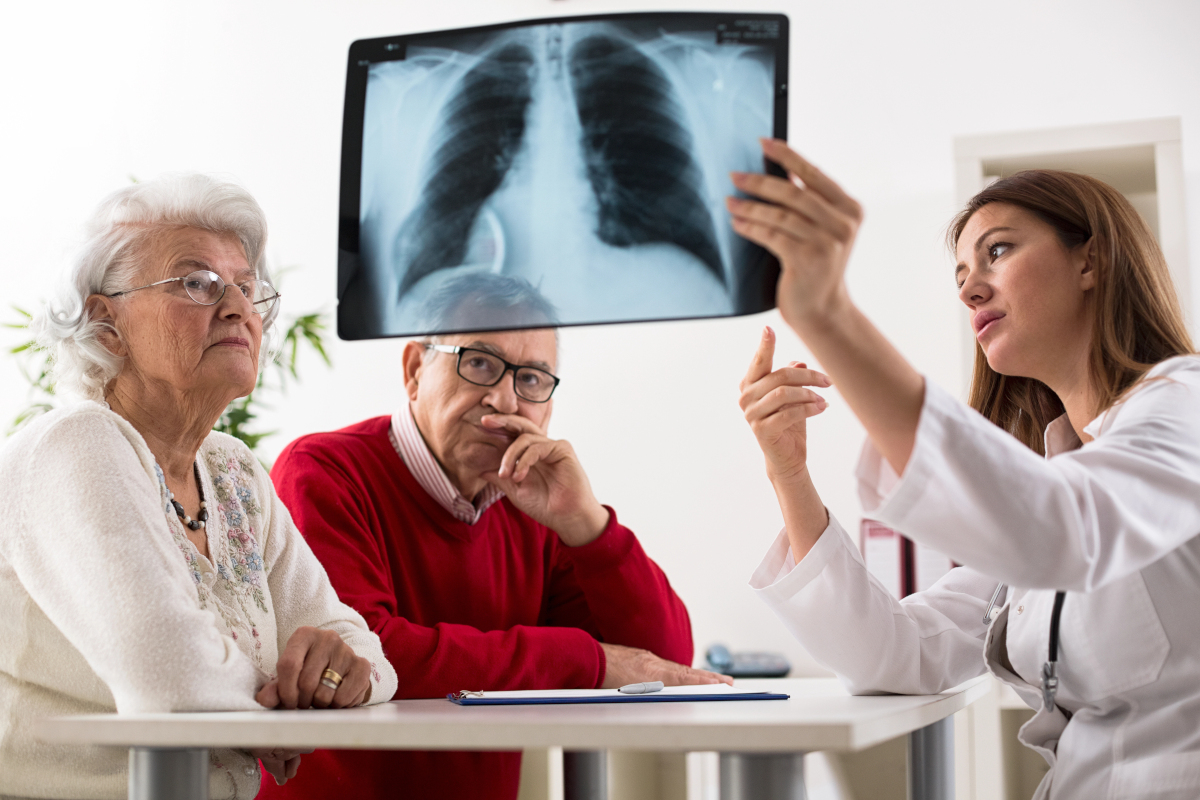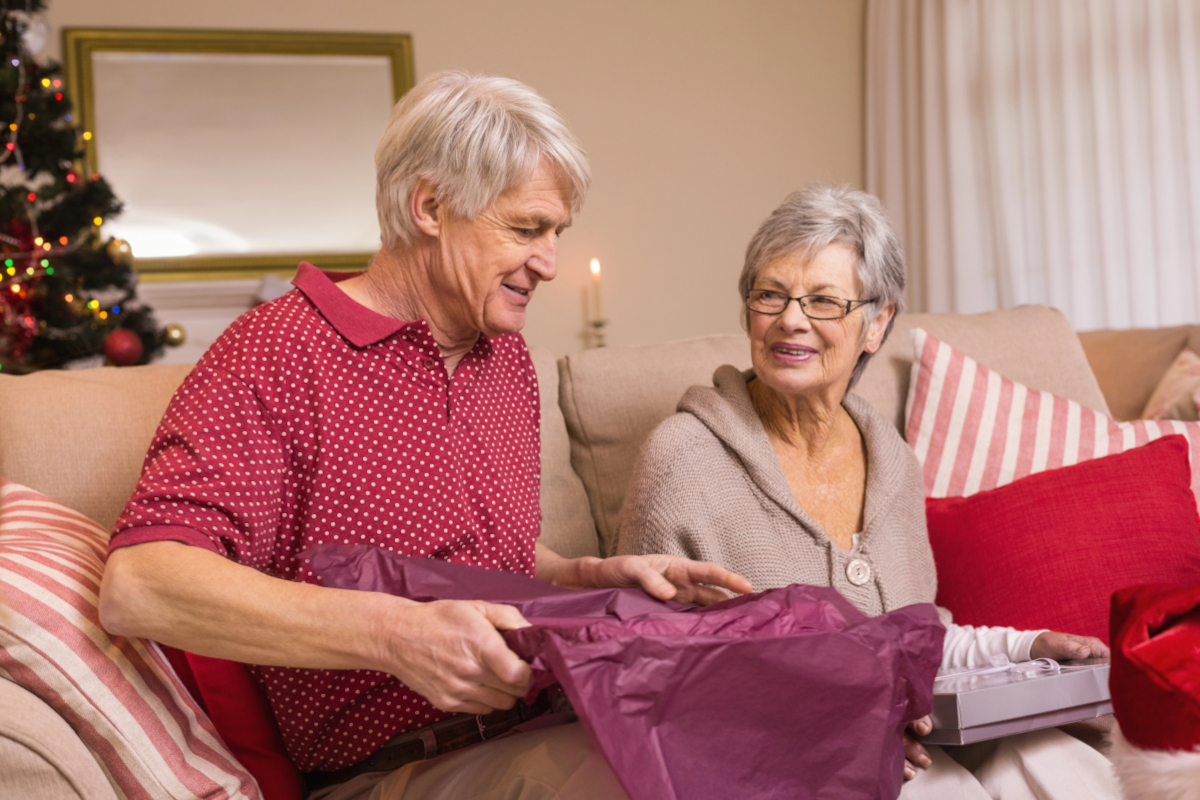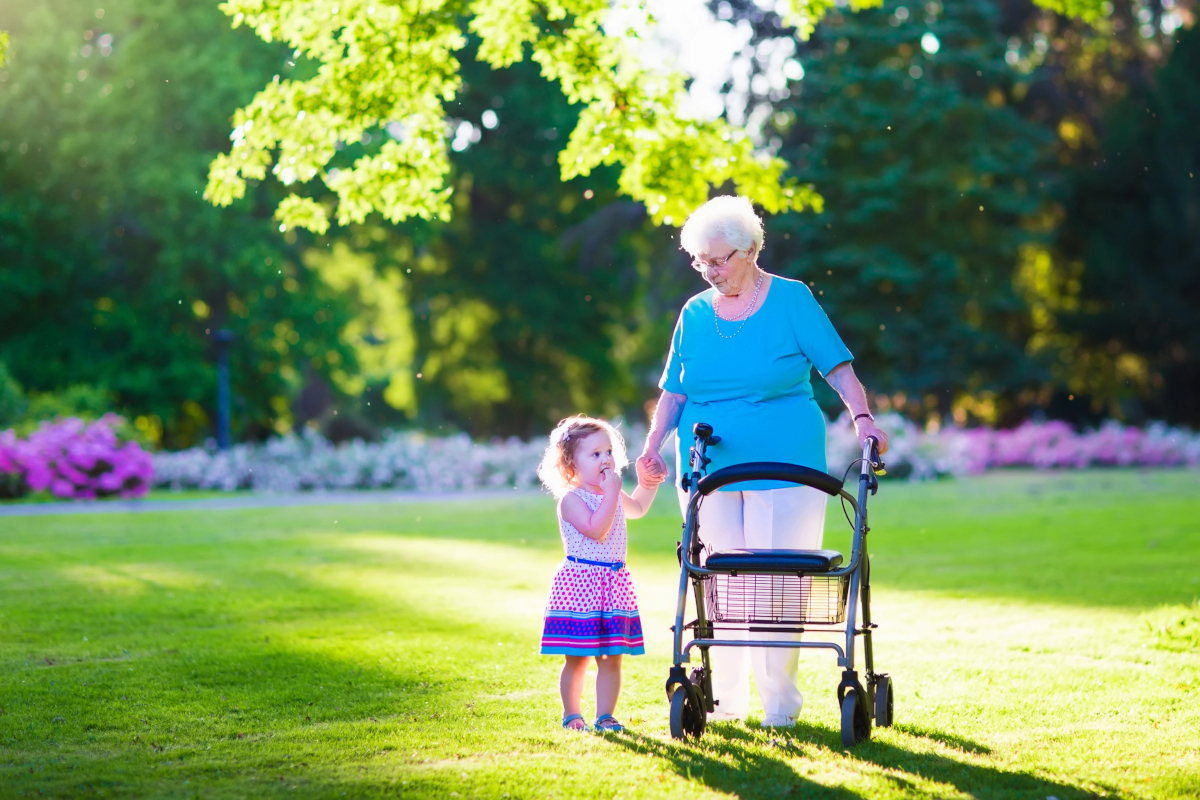Osteoporosis is a serious public health problem that affects approximately 44 million Americans. It’s a common concern for older adults, with over half of all cases reported in people who are over age 50.
Women tend to be at a higher risk for osteoporosis due to hormonal changes that occur during menopause. These changes directly affect bone density.
Osteoporosis is a condition that causes bones to become brittle and weak. A healthy person’s bones are constantly broken down and replaced. This is a natural process that continues throughout our lives. Osteoporosis occurs when new bone isn’t created fast enough to keep up with the loss.
Seniors with osteoporosis are more likely to break a bone. The condition can make bones break very easily. Other symptoms include back pain, loss of height, and stooped posture.
Some medical experts refer to osteoporosis as a “silent disease” because patients don’t feel their bones weakening. Many people do not realize they have the condition until they break a bone.
That’s why seniors should be aware of osteoporosis and what they can do to avoid it. Prevention is the best way to stay healthy and protect yourself.
Osteoporosis is responsible for around two million broken bones annually. Even though it happens often, nearly 80% of older adults in the U.S. are not tested or treated for the condition.
What can you do to protect yourself or a loved one from osteoporosis?
- Add Exercise to Your Daily Routine
Most people look to the weight loss and muscle building effects of a good workout, but the benefits go beyond that. Exercise is an important part of bone health.
Regular exercise will strengthen your bones just like it strengthens muscles. The best methods to use for bone health include weight-bearing and strength training workouts. Weight-bearing exercises can include jogging, brisk walking, jumping rope, dancing, tennis, stair climbing, and team sports. Strength training usually includes free weights, weight machines, or elastic bands.
It’s important to know your physical ability and health before you begin a new workout routine. Talk to your doctor if you plan to add any of these or other exercises to your day. They can verify that the workout is safe based on your mobility and medical status.
Always wear proper gear and clothing when you workout. Comfortable shoes that provide good support as well as clothing that allows for a full range of motion without being too loose are ideal.
- Eat a Well-Balanced Diet
A well-balanced diet is good for people of all ages but becomes even more important as we age. Many health conditions can be better managed or even avoided just by eating healthy.
Seniors should make sure they are getting enough calcium in their diet. Adults over age 70 should get 1,200 milligrams each day. Older adults who are under age 70 should get 1,000 milligrams.
Look for foods that promote bone health. These include nuts like almonds that are nutrient-packed and provide calcium, potassium, and magnesium. Dark leafy greens like spinach, bok choy, collard greens, and kale are also good choices. Studies have shown that these foods are a good source of vitamin K and calcium.
Seeds are another beneficial addition to your diet that can be eaten as a snack or sprinkled on salads and other dishes. Seeds like pine nuts, sunflower seeds, and flax seeds provide vitamin E and fiber.
Dried fruit is tasty and provides potassium which builds a protective barrier around bones that prevents harmful metabolic acids from breaking them down.
Assisted living communities serve healthy meal options that are built around senior-friendly diets using these and other ingredients. Most facilities will accommodate dietary restrictions for people who have a higher risk of osteoporosis and other medical conditions.
- Avoid Restrictive Diets
Restrictive diets can work for some purposes but can also lead to health problems. A common issue is the “female athlete triad.” Women who train intensely and restrict their diet tend to have problems with a lack of menstrual cycle, eating disorders, and thin bones.
This is a problem that happens often to young women who work out a lot but stick to a very restrictive diet. The problems can worsen as they age, during a time when their bodies are more prone to conditions like osteoporosis.
If you have a history of restrictive dieting or if you are an older adult planning to make significant changes to your diet, talk to a doctor first. They can assess your health status and help you make decisions that will protect your bones from osteoporosis.
- Don’t Smoke (or Stop if You Do)
It’s no secret that tobacco use leads to health problems. However, many do not realize that smoking can affect your bones specifically. We discovered decades ago that smoking is a risk factor for osteoporosis.
It is not known if smoking directly causes bones to weaken or if it leads to other issues that cause bones to break down. However, the connection is there. For example, smokers are more likely to be thinner and drink more alcohol. They are also more likely to be less physically active and often eat poor diets. All these factors increase your osteoporosis risk.
Women who smoke tend to enter menopause earlier in life, which further increases their risk of poor bone health.
- Talk to Your Doctor About Supplements
Dietary supplements may help lower your risk of osteoporosis. Some seniors take vitamin D, magnesium, and boron supplements to strengthen bones.
Vitamin D is essential for calcium absorption. It also helps regulate the bone renewal process. Magnesium is found in bone tissue. Studies have found that adults who have a higher magnesium intake have better bone mass density. Boron is a trace element that is used in bone growth.
If you don’t currently take a supplement, talk to your doctor. They can make recommendations and continue to monitor your bone health.
- Skip Caffeine and Salty Foods
Salty foods and caffeine are not good for your bones. These along with highly processed foods prevent the body from absorbing much-needed calcium.
Caffeine leaches calcium from bones, leaving them weakened. Soft drinks are bad for your body. Having an occasional beverage is ok but drinking them all the time will begin to have an impact on your health. Instead, try vitamin D-fortified orange juice, which can be mixed with phosphoric acid-free seltzer or club soda.
- Talk to Your Doctor About Injuries
Seniors who have had trouble with mobility recently or who have suffered falls or injuries should talk to their doctor. Even if you didn’t break a bone, you could be suffering from osteoporosis. People with the condition are at a higher risk of falls.
An increase in falling or loss of balance can also indicate other health problems that could be a serious risk.
- Schedule a Bone Density Test
A bone density test will tell your doctor a lot about your health. If you already take medication for osteoporosis, then you’ll likely need to get tested once every one to two years.
Older adults who do not have osteoporosis should be tested every two years. This is especially important for women who are in menopause or post-menopause.
The test uses X-rays to measure the minerals in your bones. It is usually done on the hip, spine, and forearm.
Safety and Assisted Living
Assisted living communities are a safe living environment for seniors with conditions like osteoporosis. They provide access to services and care as well as facilities that are equipped with safety rails and more.
If you or someone you love is experiencing mobility problems or was diagnosed with osteoporosis, it may be time to consider assisted living. We are happy to provide more information on what we can do for you. Visit us at Pinnacle Peak Assisted Living Home now to learn more.




